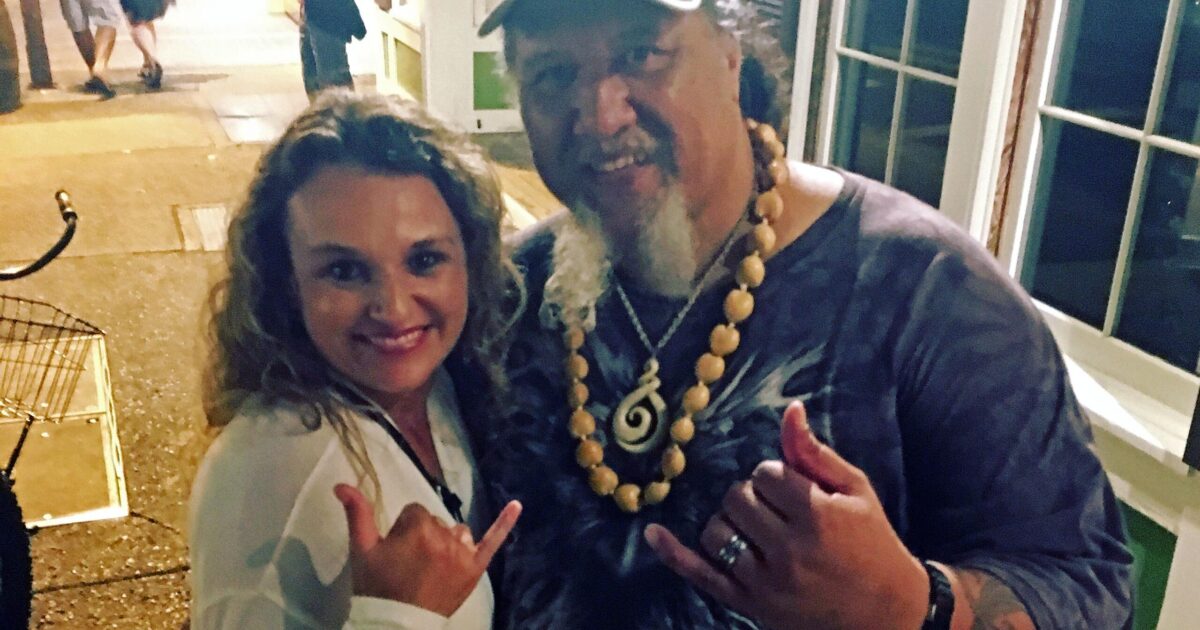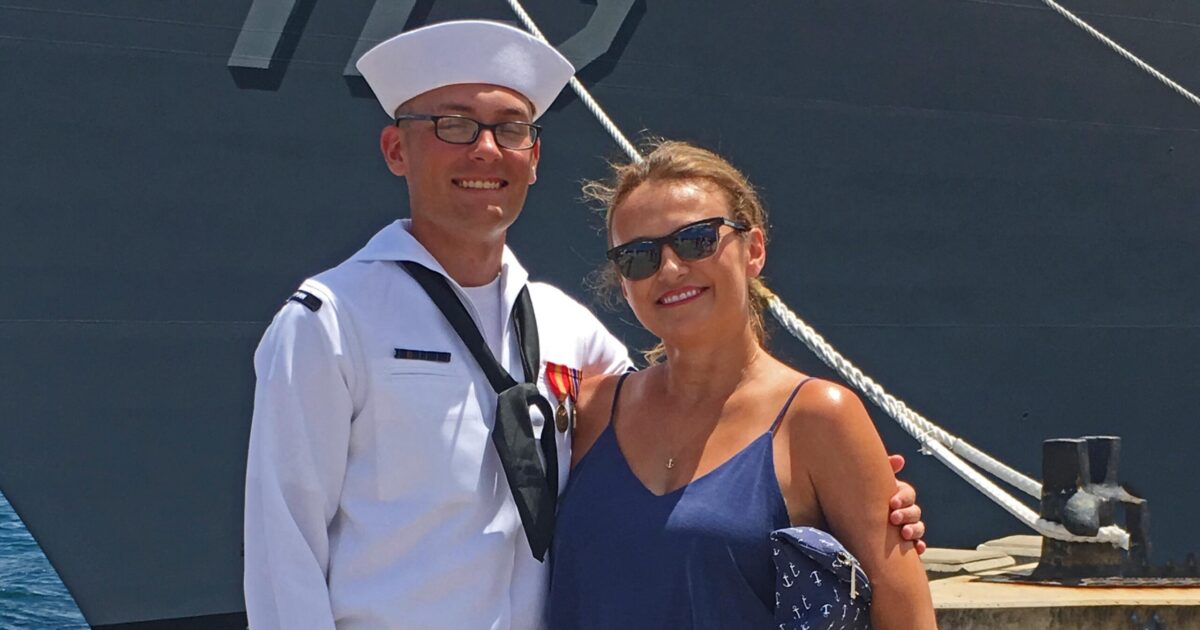In Vivian Health’s ongoing Rx for Success series, we profile a healthcare provider from our platform each week, highlighting critical career moments fueling their renewed passion for healthcare.
Recently, Vivian Health spoke with Kathryn Sandberg about her mid-career transition from medical assistant to registered nurse (RN), what it’s like to work as a Post-Anesthesia Care Unit (PACU) nurse, advocacy for LGBTQ+ patients and her role in treating victims from August 2023’s devastating wildfires in Maui.
Sandberg described herself to Vivian as a single mother of two who had struggled for 23 years while working as a medical assistant in the St. Louis, Missouri area.
“Being a medical assistant is a good entry-level position, but it’s certainly not optimal,” she explained. “You get medical experience, but they don’t pay very well, especially when you’re trying to raise children by yourself.”
Advocating for Yourself and Your Career
Across her career, Sandberg recognized an important practice to help her advance — networking with higher-level healthcare professionals for their mentorship and support. She explained that if you don’t ask for opportunities, the answer will always be “No.”
After sharing with supervisors her desire to become an RN, one doctor helped her transition to a private practice office offering more pay and a regular schedule that would provide her the time to pursue a Bachelor of Science in Nursing (BSN) on nights and weekends, once her sons were old enough to be home unsupervised.
After several years of effort, Sandberg emerged as an RN, working her first two years in a pediatric oncology unit.
Later, with her sons grown up and ready to join the military, Sandberg learned about her own opportunities to see more of the United States as a travel nurse. A flight attendant friend introduced Sandberg to Maui, Hawaii, and she fell in love with it.
Maui lacks a pediatric hospital, so Sandberg first had to train in adult care to work there. Once again, networking helped. A doctor from earlier in her career helped Sandberg find a fellowship in adult nursing in St. Louis — training that allowed her to take a travel contract and later a staff position in Maui.

Seeking a Greater Challenge as a PACU Nurse
Like many nurses profiled in our Rx for Success series, Sandberg eventually wanted to enter a more advanced specialty. She set her sights on a role as a PACU nurse.
Most health systems require PACU nurses to have ICU experience, which Sandberg didn’t have at the time. Once more, she advocated for herself by informing her health system’s hiring manager about her desire to switch to an ICU role.
“It was so important that I reached out to her and let her know what I wanted to do and why,” Sandberg explained. “If I didn’t do that, that application would be getting tossed right out because I didn’t have prior ICU experience.”
Sandberg landed her ICU role, then became a PreOp / PACU RN, which she’s worked as ever since.
PACU nurses are part of a general umbrella known as perioperative nurses who work on a team with surgeons and anesthesia doctors to prepare patients for surgery, perform surgery and provide the necessary post-surgical care.
“I would compare PACU nursing to ER nursing, where you have patients for a limited amount of time to take care of them, ensure they’re waking up safely and send them home or admit them to the floor.”
Depending on the health system, a PACU nurse might also function as a PreOp nurse.
“I do pre-op and post-op. We get patients ready for surgery. We start their IVs. We go over their orders, health history and medications. We may have to do blood work or an EKG and make sure that the anesthesiologist is ready to approve them.”
PACU nurses may provide care to a range of patients with a variety of possible outcomes.
“We do everything from endoscopy to cardiac catheterizations. We will recover patients who may have had an intervention,” she explained. “They may go home, or we may hold them until the ICU has a bed.”
“Compared to the ER or ICU nursing, it is generally much less stressful. You have more control over the situation because the patient coming to you usually isn’t fragile. Most of the time, they’re going home.”
Multiple Benefits from Travel Nursing

Lately, Sandberg has done some stints as a travel PACU nurse. She sees multiple benefits to travel nursing, including the ability to see more of the U.S., a way to escape poorly managed health systems and a path to financial security.
For instance, at the start of the COVID-19 pandemic, Sandberg found herself working at a health system that was poorly managing supplies and personal protective equipment for its staff. She was feeling burnt out under the conditions.
“My friend and I said, ‘What are we doing here? Let’s go travel!’ So that’s when we started travel nursing again.”
Sandberg took a travel position on a Navajo Nation reservation in Arizona. Federal facilities, such as those on many Native American reservations, accept licensure from any state, making these facilities an easy choice for travel nurses. She and her friend would schedule three shifts in a row and then spend their time exploring the scenic desert and mountain landscapes of the Four Corners region.

Photo Credit: Braindrain0000, CC BY-SA 3.0, via Wikimedia Commons
Travel nursing often entails higher pay, so it’s helping this once-struggling single mom to get on a path to financial security.
“Travel nursing is basically how I am funding my retirement because as a single mom starting later in life, all of my money that first half of my life went to supporting my kids,” she said. “Now I’ve got this 20-year span ahead of me where I can use travel nursing to get money for retirement and have a work-life balance that is really important to me.”
Advocacy for LGBTQ+ Patients
Sandberg told Vivian that no matter where she travels, she sees her job as a way to be a fierce advocate for the LGBTQ+ community and BIPOC people, an acronym for Black, Indigenous and People of Color.
“Depending on where I’m at in the country, on one occasion or another, I have had to remind a nurse that we are here for every patient no matter their background.”
Sandberg recalled a time when a fellow nurse refused to care for a gay patient. She stepped in to provide care so that the patient would never know the other nurse had refused to care for him. “I’m walking in there, and the patient can see my ID badge and one of the little pins I have just says ‘Safe Space’ in rainbow colors. We had a great shift. It was great.”
RELATED: 5 Ways to Improve Care for Your LGBTQ+ Patients
Using Vivian for Its Breadth of Information
With her varied career, Sandberg sees Vivian Health as a platform for exploring the full range of possibilities available to nurses.
“The best part about it really is that you can discover different travel nursing companies and investigate what benefits they offer and who has the best fit for you,” she said. “I love that Vivian seems to have the breadth of knowledge that they do and the breadth of resources that they do for all these different travel nursing companies.”
As for her own multi-phase career from medical assistant to pediatric RN, then from ICU to PACU and staff nursing to travel:
“I hope it inspires people who are having that midlife crisis or who’re not really sure what to do,” Sandberg offered. “It’s not too late to go back to school, and it’s not too late if you are already a nurse to learn a new specialty. You can always explore and see what’s out there. And again, the answer is always no if you don’t ask.”
Begin your own adventures in nursing and start your job search with Vivian today.









